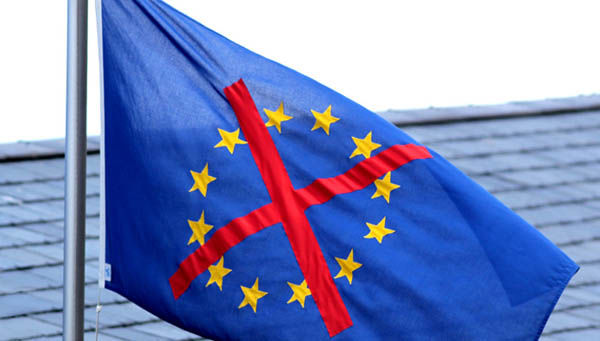
Some years ago, the European Commission decided to regulate the maximum curvature that could be authorised for bananas and cucumbers. The notorious Regulation 2257/94 was finally dispensed with in 2008 due to pressure from certain Member States, but it is often cited as one of the prime examples of the EU’s regulatory excesses. It has resurfaced now that some governments, before and –even more so– after the European elections, are calling for a certain withdrawal of the EU. The idea of an ‘ever closer union among the peoples of Europe’ that figures in almost all treaties including the latest –Lisbon-, seems to have peaked. And yet, aiming for ‘less Europe’ is not that easy, as made evident by the country that promoted the idea, the UK, even from outside the euro.
In view of his proposal of a ‘renegotiation’ before the promised referendum in 2017 (if he is still in office), in 2012 David Cameron announced an exhaustive reappraisal of all the EU’s powers, to be known as the Review of the Balance of Competences. The Review has already given rise to 14 public reports covering various issues (such as the internal market, health, asylum, and trade and investment). Although it still lacks what is arguably the main issue, the free movement of workers –given the immigration restrictions he would like to impose–, so far the reports have left much to be desired, at least to the critics who believe the whole exercise has been ‘hijacked’ by the pro-Europeans. But the aim was not yet to reach specific conclusions on issues ripe for repatriation, but simply to gather the opinions of experts and sectors. And the balance of the overall balance is that both of the latter are generally satisfied with the situation, with no truly new and brilliant ideas putting in an appearance.
Cameron has spoken of the ‘repatriation’ of competences. Not so the Dutch government, a liberal-socialist coalition, which form a more communitarian perspective prefers to lay the stress on a ‘better Europe’ rather than on ‘less Europe’. In 2013, in a report on subsidiarity and proportionality, it insisted that the EU should focus to a greater extent on a range of topics, instead of advancing tous azimuth, in all directions. Thus, the Dutch are against the EU moving forward on issues such as the family reunification of immigrants, freedom and media pluralism or the mandatory participation of women on the boards of directors of listed companies. These are issues that, along with others, the Dutch government believes should remain in the national domain, in addition to demanding that national governments play a greater role in the European project. But The Hague is also in favour of making further progress in promoting a number of issues such as the Economic and Monetary Union, the Banking Union, the Single Market and energy, among others.
The debate is on. In France, its Socialist President, François Hollande, has followed in the wake of his colleagues after the European elections resulted in Marine Le Pen’s anti-European National Front gaining first place. He now speaks of ‘redirecting’ Europe. It is clear that the EU must reach out to its citizens. However, as the British exercise has shown so far, reversing European integration –which has its own internal logic and dynamics– will not be easy if at the same time one wishes to deepen the internal market: it is not the same as not advancing in certain areas. It is even more difficult for the members of the Eurozone, who have made much progress in recent years and are called to advance even further. The use of the so-called ‘yellow’ or ‘red card’ to allow national parliaments to halt –under the Treaty of Lisbon and on the grounds of subsidiarity– a proposal from the European Commission has been very limited. Moreover, to halt or reverse integration would in some cases require the treaties to be reformed, a step that many governments are reluctant to take for fear of the ensuing referendums. The real battle for Europe is beginning now. And this time it will not be about the 14-centimetre maximum curvature of bananas or cucumbers.


